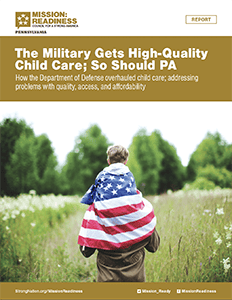REPORTS

Solving the Child Care Teacher Shortage Through State Recruitment and Retention Investments
June 2024

$2.4 Billion: The Annual Cost of PA's Child Care Crisis for Working Mothers
June 2024
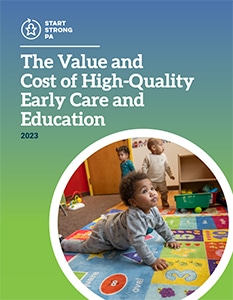
The Value and Cost of High-Quality Early Care and Education
December 2023
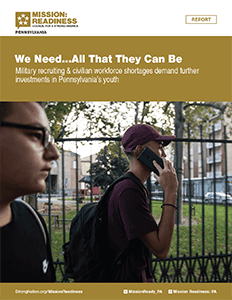
We Need...All That They Can Be
November 2023
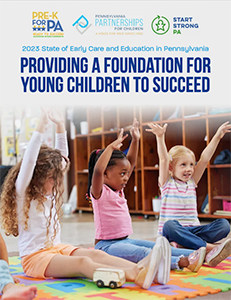
2023 State of Early Care and Education in Pennsylvania
August 2023
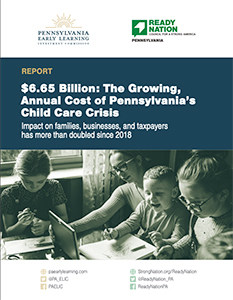
$6.65B: The Growing, Annual Cost of PA's Child Care Crisis
March 2023
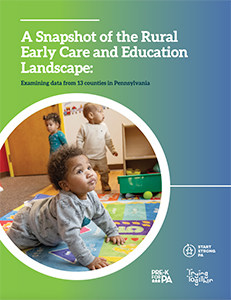
A Snapshot of the Rural Early Care and Education Landscape
March 2023
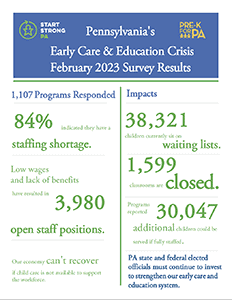
PA's Early Care & Education Crisis
February 2023
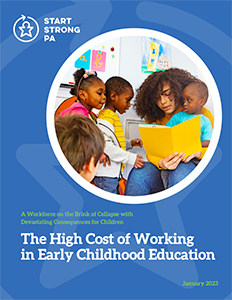
The High Cost of Working in Early Childhood Education
January 2023
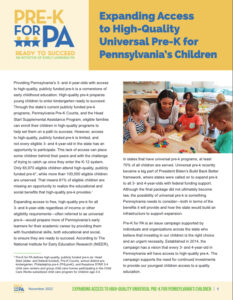
Expanding Access to High-Quality Universal Pre-K for Pennsylvania's Children
November 2022
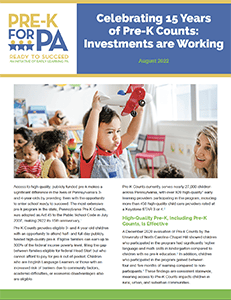
Celebrating 15 Years of Pre-K Counts: Investments are Working
August 2022
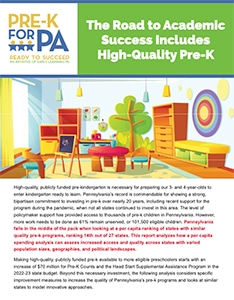
PPC Pre-K State Comparison Report
April 2022
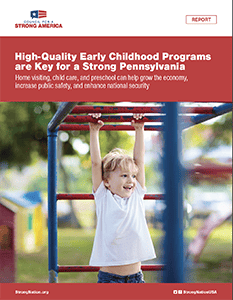
High-Quality Early Childhood Programs are Key for a Strong Pennsylvania
April 2022
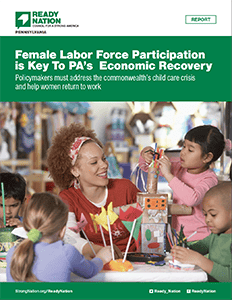
Female Labor Force Participation is Key to Pennsylvania's Economic Recovery
September 2021
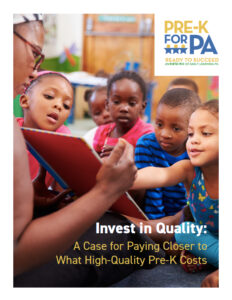
Invest in Quality: A Case for Paying Closer to What High-Quality Pre-k Costs
March 2021
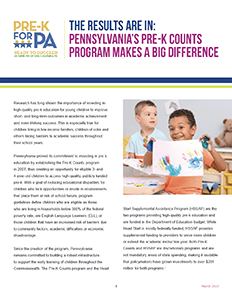
The Results are In: Pennsylvania's Pre-K Counts Program Makes a Big Difference
March 2021
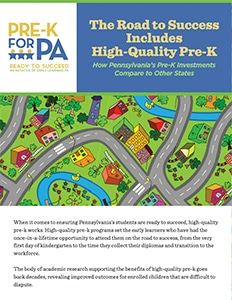
The Road to Success Includes High-Quality Pre-K
January 2020
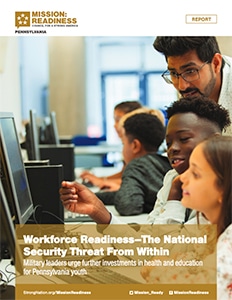
Workforce Readiness - The National Security Threat from Within
November 2019
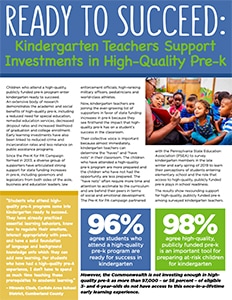
Ready to Succeed: Kindergarten Teachers Support Investments in High-Quality Pre-k
May 2019
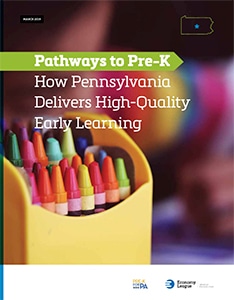
Pathways to Pre-K: How Pennsylvania Delivers High-Quality Early Learning
March 2019
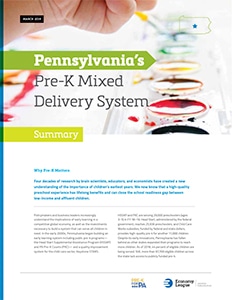
Pennsylvania's Pre-K Mixed Delivery System
March 2019
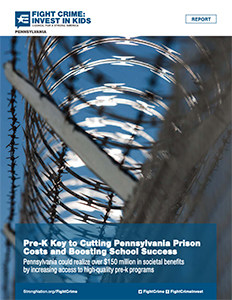
Pre-K Key to Cutting Pennsylvania Prison Costs and Boosting School Success
May 2018
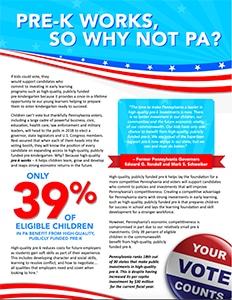
Pre-K Works, So Why Not PA?
February 2018
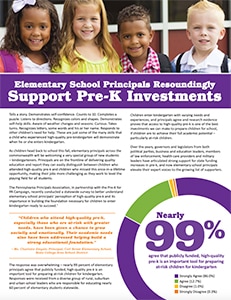
Elementary School Principals Resoundingly Support Pre-K Investments
September 2017
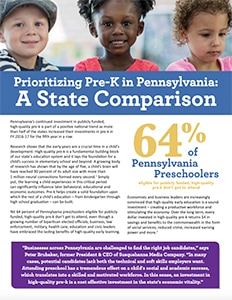
Prioritizing Pre-K in Pennsylvania: A State Comparison
May 2017

